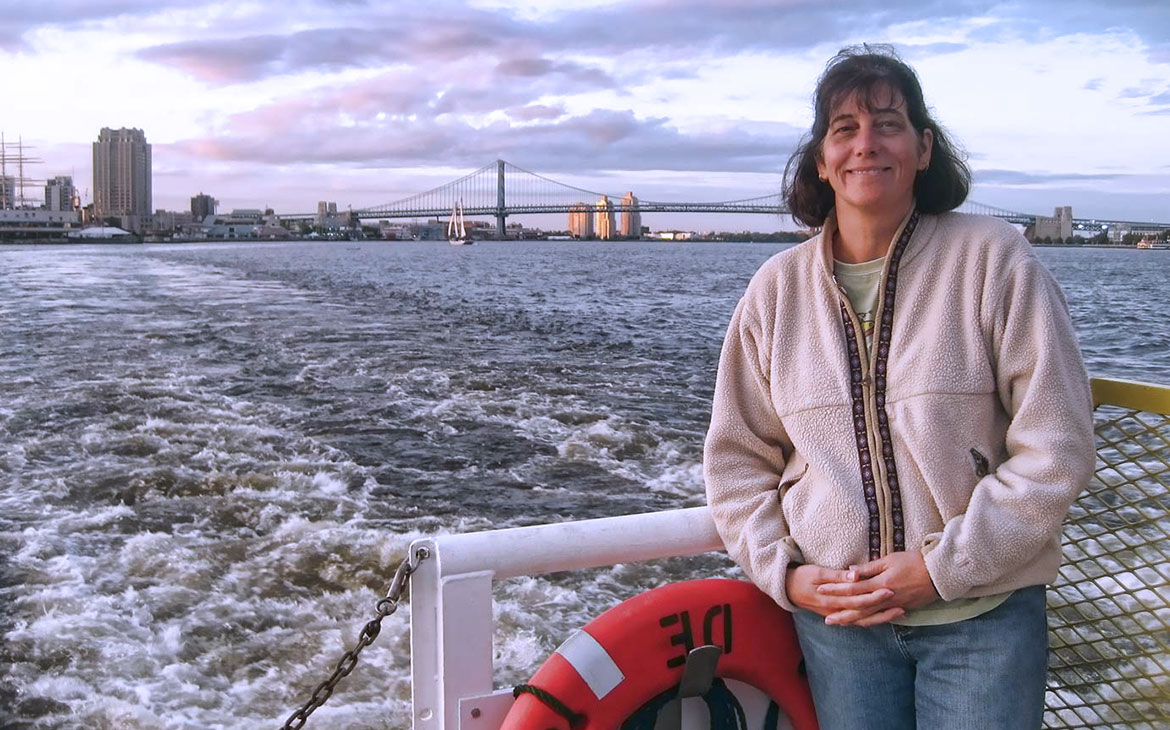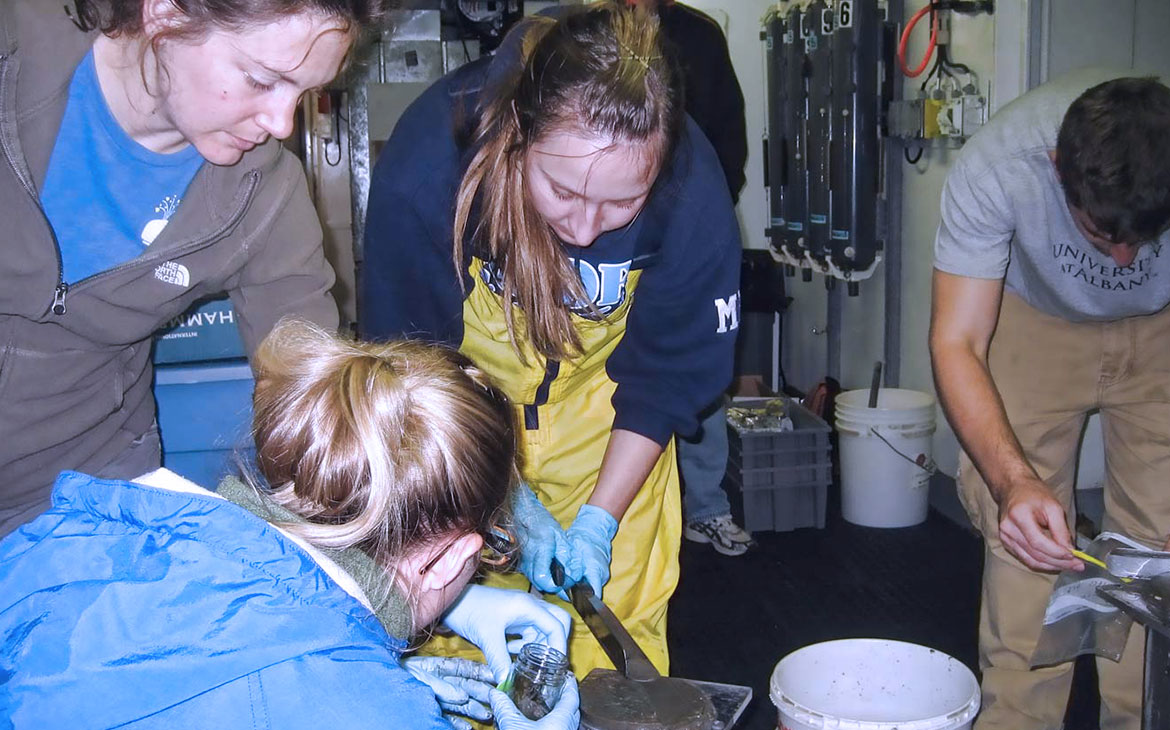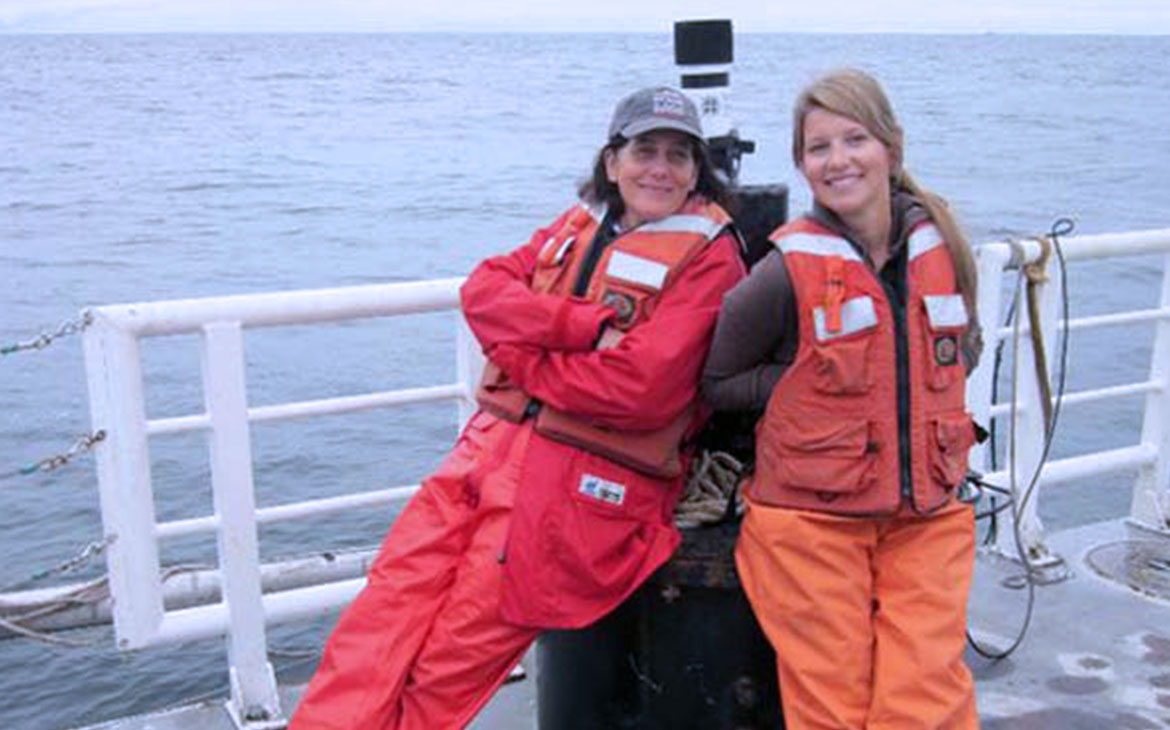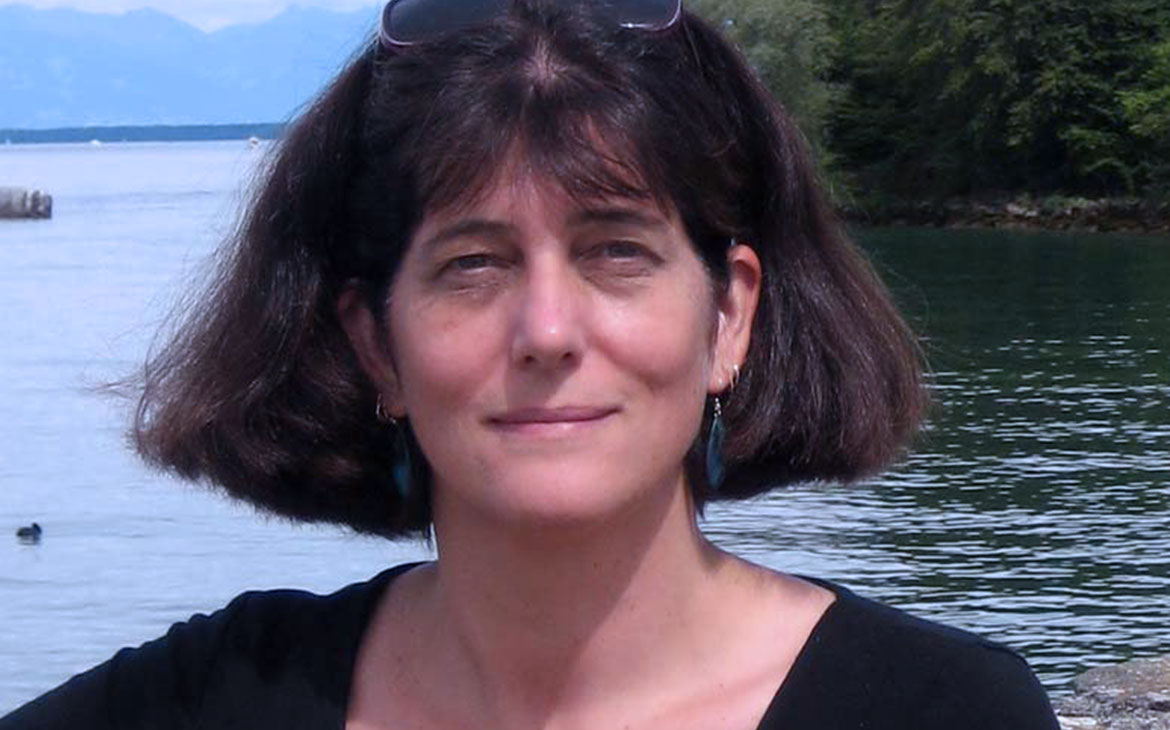The issue of carbon cycling is of societal relevance as we face a future impacted by the human alteration of that cycle and the resulting impacts on climate. One of the most important transition zones on earth is that of land to sea. One of the fundamental uncertainties in our understanding of the carbon cycle is how processes at transition zones determine flow of carbon globally. Consequently, understanding the bio-geo-physical fluxes and processing of carbon in estuaries is emerging as a research relevant to understanding coastal ecosystems in the face of natural and anthropogenic pressures.
Liz explains that the reason for going to Germany is that the facilities in Dr. Mollenhauer’s lab are very specialized allowing her to isolate individual compounds for radiocarbon analyses allowing them to pinpoint not only sources but the ages of the organic carbon that is coming out of the Delaware.

The objective of the project is to investigate carbon cycling in the Delaware River estuary to assess burial (sequestration) versus biological remineralization of carbon along the estuary’s chemical gradient. The aim is to improve understanding of carbon budgets within estuaries, and the global influence of estuarine processing on carbon that is delivered to the marine realm. Data generated during this fellowship will be integrated into a larger study lead by Bob Chant in IMCS and Chris Sommerfield (University of Delaware) to address how sediment mobilization and hydrodynamics govern the processing of organic carbon from different sources, particularly pre-aged sources in an estuary.

The Hanse-Wissenschaftskolleg (HWK) is a non-profit foundation; annually the institute appoints guest scholars (Fellows) from all over the world to stay at the HWK building to facilitate collaboration with colleagues at the Universities of Bremen and Oldenburg. These competitive fellowships are intended to enhance the research potential of the universities and research institutions in the region. Marine and Climate Research is one of the four focus areas of the HWK the others are Energy Research, Social Sciences, and Neurosciences and Cognitive Sciences. The HWK promotes disciplinary and interdisciplinary collaboration among highly qualified scholars and scientists, both at national and international levels. Liz will be working jointly with Colleagues from The Alfred Wegener Institute for Polar and Marine Research, The University of Bremen, and at the Max Planc Institute for Marine Microbiology.

Liz will be in residence in Bremen, Germany for the summers of 2012 and 2013 working the labs of Dr. Gesine Mollenhauer, Dr. Sabine Kasten and Dr. Enno Schefuβ at the Alfred Wegener Institute/ University of Bremen. Their joint project is titled: Sources and fate of detrital particulate carbon in a coastal plain estuary.

